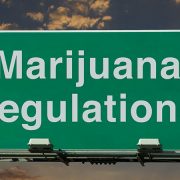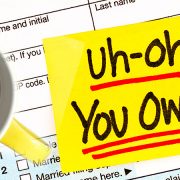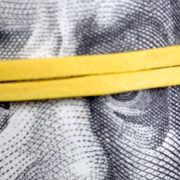President Trump Signs 2018 Farm Bill Legalizing Hemp, Will Cannabis Follow?
Every five years, Congress passes legislation that sets national agriculture, nutrition, conservation, and forestry policy, commonly referred to as the “Farm Bill”. On December 20, 2018 President Donald Trump signed legislation into law that includes language lifting the United States’ decades-long prohibition on domestic, commercial hemp and hemp-derived products. The provisions were included within The Agriculture Improvement Act of 2018 (the “2018 Farm Bill”), which takes effect on January 1, 2019.
Language included in the 2014 version of the Farm Bill permitted states to license farmers to cultivate hemp as part of a university-sanction pilot program, but did not allow for the commercialization of the crop.
The hemp-specific provisions of the 2018 Farm Bill amend the Federal Controlled Substances Act of 1970 so that hemp plants containing no more than 0.3 percent THC are no longer classified as a schedule 1 controlled substance under federal law. The 2018 Farm Bill also broadens the definition of hemp to include “any part of the plant, including … extracts [or] cannabinoids” that do not possess greater than 0.3 percent THC on a dry weight basis (Section 297A).
The 2018 Farm Bill permits those States that wish to possess “primary regulatory authority over the production of hemp” to submit a plan to the U.S. Secretary of Agriculture. The agency has 60 days to approve, disapprove, or amend the plan. In instances where a state-proposed plan is not approved, “it shall be unlawful to produce hemp in that state … without a license” (Section 297B). Federal grant opportunities will be available to licensed commercial farmers, as will the ability for farmers to obtain crop insurance. The 2018 Farm Bill does not federally recognize non-licensed, non-commercial hemp cultivation activities.
Until January 1, 2019, hemp has been grouped in with marijuana which under the Federal Controlled Substances Act (“CSA”) 21 U.S.C. § 812 classifies marijuana as a Schedule 1 substance with a high potential for abuse, no currently accepted medical use in treatment, and lack of accepted safety for use under medical supervision.
Generally, businesses can deduct ordinary and necessary business expenses under I.R.C. §162. This includes wages, rent, supplies, etc. However, in 1982 Congress added I.R.C. §280E. Under I.R.C. §280E, taxpayers cannot deduct any amount for a trade or business where the trade or business consists of trafficking in controlled substances…which is prohibited by Federal law. Cannabis, including medical marijuana, is a controlled substance. What this means is that dispensaries and other businesses trafficking in cannabis have to report all of their income and cannot deduct rent, wages, and other expenses, making their marginal tax rate substantially higher than most other businesses.
2018 Farm Bill Gives Hemp Growers Increased Access to Banks and Water
Lawmakers are realizing that there are economic and environmental benefits to growing hemp over other crops like cotton and corn. Hemp requires less water to grow, you can grow a lot of it on smaller plots of land, it doesn’t need pesticides to stay healthy, it can help reinvigorate damaged soil, and it actually can help reduce the carbon dioxide levels in the atmosphere. This makes it an extremely lucrative crop. There are also tons of uses for hemp. Hemp can be made into fabric for clothing, environmentally friendly plastic, rope, food, shoes, building materials, lotions, and of course, CBD products.
An important change that the 2018 Farm Bill makes is that banks should not be reluctant to go into business with hemp farmers anymore. We know banks are extremely hesitant to get involved with cannabis businesses like dispensaries because of the legal status of marijuana at the federal level, and that challenge does create a lot of extra work for dispensaries. Now that hemp will be a legal business we will have to see how banks may increase their involvement with this industry and how it could spill over to cannabis.
Hemp farmers will also gain access to federally controlled water. The Bureau of Reclamation controls water projects in western states like Colorado, Montana and Oregon. While hemp was federally illegal, hemp farmers were not necessarily entitled to the use of that water for their crops. The Bureau could have denied farmers access to that water at anytime, which would have been a major hit to their crops. The 2018 Farm Bill puts hemp farmers in a more secure position.
Will the FDA Regulate CBD Products?
On December 20, 2018 the Federal Food & Drug Administration (the “FDA”) issued a press release stating its position and role in the regulation of hemp and CBD products. The FDA has stated that CBD is not allowed in food, and there is nothing in the 2018 Farm Bill that explicitly changes that. Since the government will regulate the growing of hemp, that should ensure “safe” pesticides are used and plants don’t contain more than .3% THC, so in that sense there will be more regulations. There are a lot of clarifications that still need to be made. Some states have laws that specifically classify CBD products as illegal, and the 2018 Farm Bill won’t erase those laws. The FDA will also need to adapt its stances on CBD by finding ways to enforce the laws and regulate products.
What Should You Do?
Given that there is still a lot of regulatory action and modifications to State law that needs to happen before we can say that CBD products are 100% legal and hemp businesses are taxed in the same way as any other business, you need to protect yourself and your investment. This is especially true for cannabis which is not impacted at all by the 2018 Farm Bill. Level the playing field and gain the upper hand by engaging the cannabis tax attorneys at the Law Offices Of Jeffrey B. Kahn, P.C. located in Orange County (Irvine), the Inland Empire (Ontario and Palm Springs) and other California locations. We can come up with tax solutions and strategies and protect you and your business and to maximize your net profits.











 Follow
Follow Follow
Follow